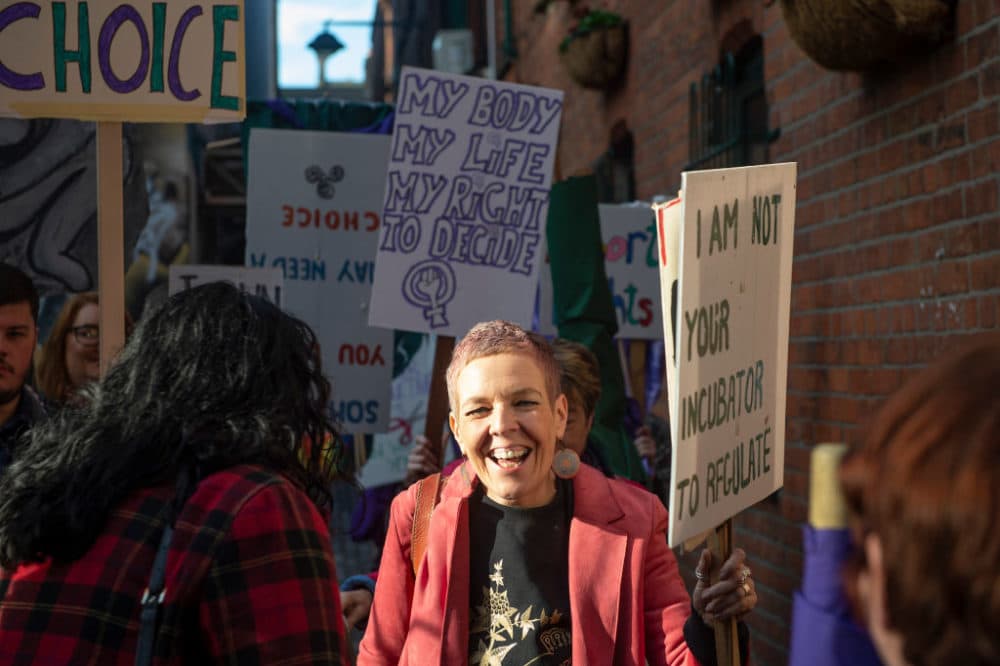Advertisement
Commentary
Most democracies are expanding abortion access. The U.S. is retracting it

Fifty years ago, the United States was a global leader in recognizing women’s reproductive rights. Today, however, much of the rest of the world has caught up or surpassed the U.S. in extending abortion access.
The United States’ closest legal peers — Canada, the United Kingdom, New Zealand, and Australia — have laws that are either in line with or more generous than those here. Like the U.S., other liberal democracies including the Netherlands and Iceland, also protect the right to abortion until or near the point of viability. This is what makes the Supreme Court’s threatened reversal of Roe v. Wade not only dangerous and life-threatening, but legally indefensible.
The Texas law banning abortions at six weeks, before many women even know that they are pregnant, may be a sign of things to come. So far, the courts have allowed the law to go into effect even though it marks a dramatic regression in reproductive rights that both violates Roe and is far outside of international norms. The case is now before the Supreme Court once again, giving the court a second opportunity to uphold its own precedents and suspend these state-level restrictions.
A superficial review of abortion laws only ever tells part of the story of its actual availability. In many countries where the law on paper appears more restrictive than Roe, abortion is freely available in practice. In these countries, healthcare professionals apply the law in a way that respects the pregnant person’s view on how pregnancy would impact her health, life and existing family. This means that even where a national law lays down “grounds” for accessing abortion (like “risk to health” or “situation of distress”), women can almost always obtain the abortion care they need and want.
There is no mystery to the worldwide trend toward liberalization. Abortion is part of healthcare, and women have abortions whether they are legal or not.
These on-the-ground realities are obscured by the crude exercise of merely counting how many countries allow “abortion on request” that has become the vogue among abortion opponents in the United States.
The anti-choice advocates also refuse to acknowledge the very clear, sustained and long-standing trend towards liberalization of abortion laws worldwide. In just the last five years in Europe, for example, enormous popular majorities chose to liberalize hyper-restrictive laws in Ireland, Gibraltar and San Marino. The laws in Northern Ireland (where abortion was completely decriminalized), Iceland, the Isle of Man and elsewhere were reformed to expand access.
A similar pattern emerges in the Americas where, apart from the United States, the clear and unequivocal trend is towards making abortion legal, accessible and safe. Mexico is only the most recent nation to liberalize its laws — following the same path as Argentina, Uruguay, Colombia and Chile. The U.S. is the outlier.
Advertisement
International human rights institutions, including United Nations bodies, have held that access to abortion is integral to the rights to life, health, privacy and non-discrimination. An amicus brief submitted by the UN mandate holders in Dobbs v. Jackson Women’s Health Organization, makes very clear that undoing Roe would be incompatible with established international legal standards.
There is no mystery to the worldwide trend toward liberalization. Abortion is part of healthcare, and women have abortions whether they are legal or not. When abortions are not legal, they are more likely to be unsafe — especially if people do not have the resources or information to access care from safe and reputable sources. (Not surprisingly, public health experts have found that maternal mortality drops in locations where women can safely access an abortion.)
The handful of countries that have adopted more regressive abortion laws in recent years ... are autocratic regimes distancing themselves from democratic governance.
Should U.S. lawmakers and our courts pay any heed to these worldwide trends? “Comparative side glances,” as Justice Ruth Bader Ginsburg characterized them can provide important perspectives on our own legal frames. Abortion access is the immediate issue before the Supreme Court this term in Dobbs, but that’s not the only thing at stake. The values propelling liberal abortion laws in other nations are the same enduring values that the Supreme Court has confirmed in Roe and Planned Parenthood v. Casey: women’s autonomy, equality and self-determination. The handful of countries that have adopted more regressive abortion laws in recent years — such as Poland, Nicaragua and Honduras — are autocratic regimes distancing themselves from democratic governance.
America’s founders may not have recognized women as full citizens, but we understand now that reproductive rights are critical building blocks of democracy.
Around the world, nations have learned this lesson and acted to expand women’s access to the full range of reproductive health care. Any attempt to roll back the long-standing constitutional protection of women’s access to abortion would both endanger women and make the U.S. a legal outlier worldwide.
About the authors: Martha F. Davis is professor of law at Northeastern University School of Law. Fiona de Londras is professor of global studies at the University of Birmingham (United Kingdom).